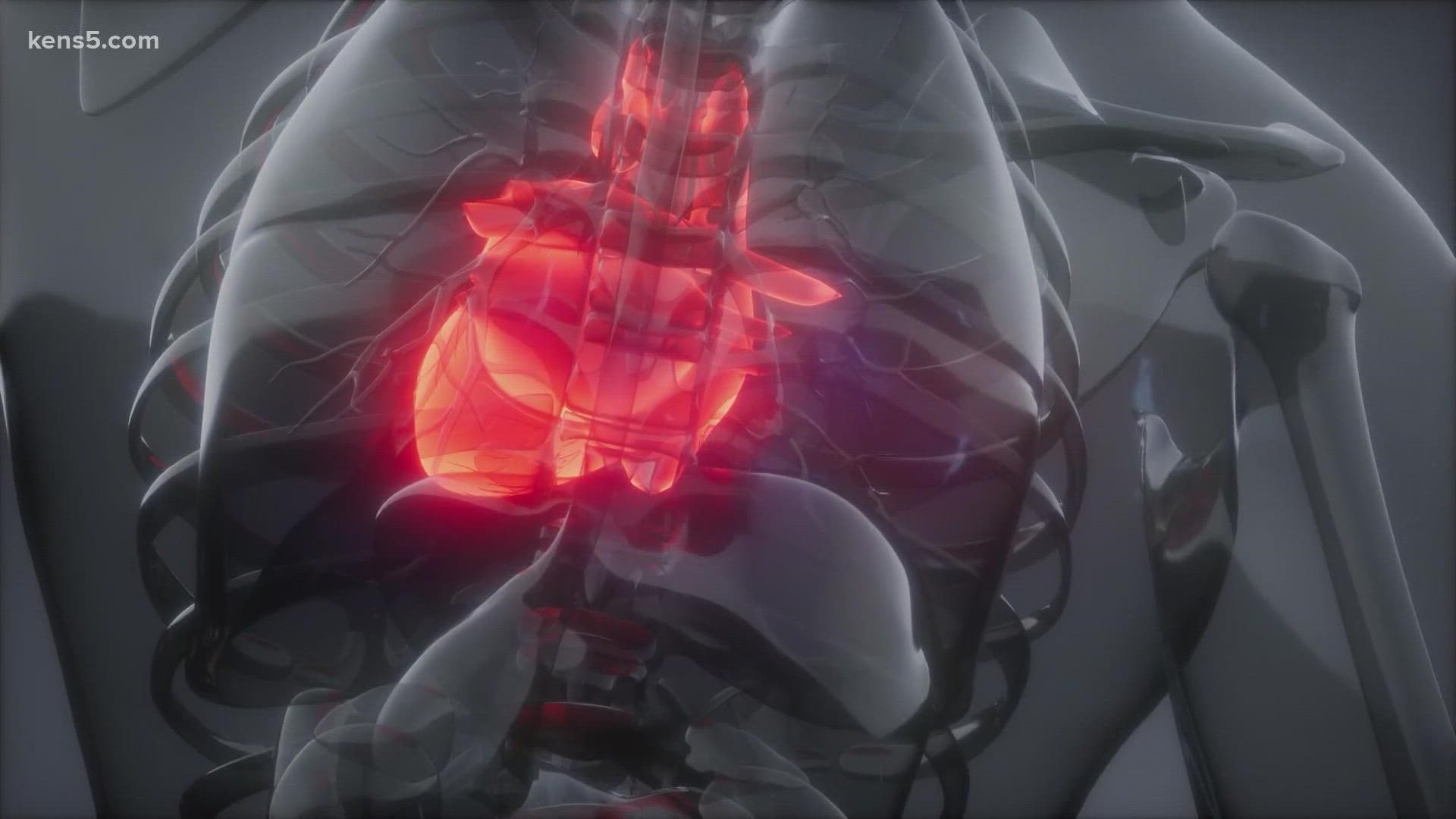SAN ANTONIO — We hear it from people all of the time, "With a vaccine, getting COVID is just like the flu."
But a first-of-it's-kind large study just released found that COVID can lead to long term damage in the heart, even if you didn't have a severe case of it.
This is the first large study to look at cardiovascular outcomes in COVID patients one year after contracting the virus, and the results were rather disturbing.
"I think we have a lot of work ahead of us in terms of cardiac problems that we're going to probably see, that we can expect to see in the near future," said Dr. Fahmi Farah, a Bentley Heart cardiologist.
Researchers took data from Veterans Affairs. They looked at records from 11 million people, and analyzed 154,000 people who contracted COVID-19 between March of 2020 and January of 2021 that survived at least one month after being infected.
The study found the risk of 20 different heart and blood vessel maladies increased substantially one year later among those who had COVID, compared to those that didn't.
"People die from cardiovascular complications of influenza, but it's very clear that with COVID, the risks are much greater," said Dr. Allen Anderson, a cardiologist with University Health and professor of medicine with UT Health San Antonio.
COVID raised the risk of all ailments studied including heart attacks, heart failure, cardiac arrest, arrhythmias, pulmonary embolisms, and deep vein thrombosis.
"The sicker you were from COVID, the greater your chances were of having these cardiovascular conditions that were seen," Dr. Anderson said.
Even if you didn't have severe COVID symptoms, and just mild symptoms, and were asymptomatic like 40 percent of cases, you too could end up with an increased risk of heart maladies too. But when should you see a doctor?
"If they're having fatigue more than usual, if they're not able to carry on their usual activity, they're having things like palpitations or chest pains, shortness of breath with minimal activity or with strenuous activity," said Dr. Farah.
Both doctors says we have a long way to go before we understand all of the real long term effects of COVID-19.

